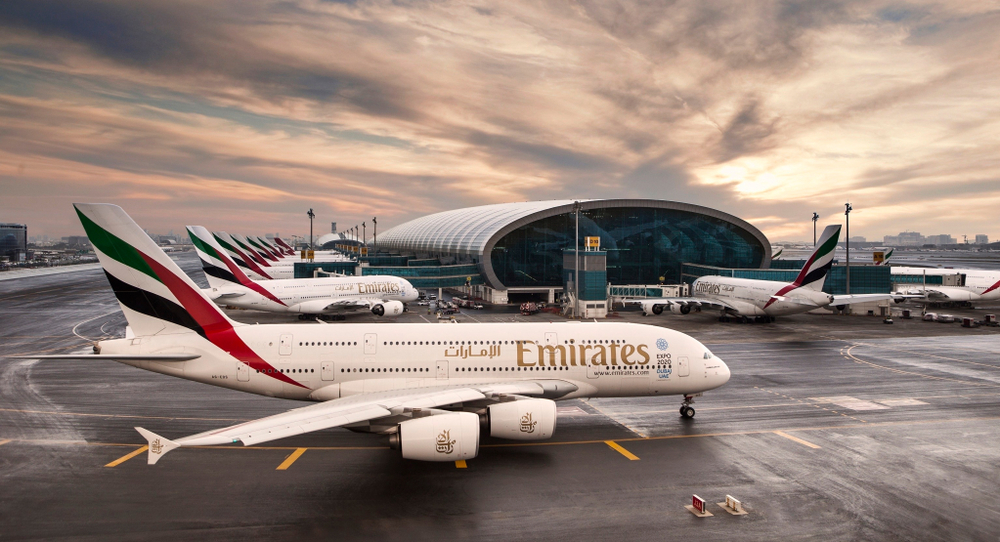Emirates planning to increase capacity to 70% by year-end
Contributors are not employed, compensated or governed by TDM, opinions and statements are from the contributor directly

Emirates has so far recovered 120 passenger destinations, despite continued Covid restrictions.
Emirates is aiming to increase its capacity up to 50% in the summer, with a view to ramping that up to 70% by the winter – a “critical” period for the carrier, according to chief commercial officer Adnan Kazim.
Despite the loss of key markets, including the UK, South Africa, India, Pakistan, and Bangladesh, due to Covid-19 travel restrictions, to date Emirates has recovered 120 passenger destinations – 130 including cargo routes.
And although the global situation remains uncertain, Kazim told Arabian Business he remained confident that numbers will return.
He said: “Our objective is to gradually put back the capacity, which is the key, to bring it back to the 70% pre-Covid hopefully by winter, but that will come in phases, on a step-by-step basis.
“The milestone of that increase should be starting in July and the summer when the peak will hopefully commence to get into 40-50% until gradually, we get up to the 70%.
“That is the plan we have, but besides that, we’re trying to gradually bring the network back to normality. From where we stand at 120 still, we are short of 23 destinations on the passenger side, so gradually we’re trying to recover these networks one-by-one, especially the secondary airports which is more difficult with the current lockdowns and Covid restrictions around there. But that’s what we’re aiming for.”
This will be given a boost by the news this week that the codeshare agreement between Emirates and Flydubai is scheduled to have a combined network of 168 destinations by the end of May.
Since the revival of the airlines’ codeshare partnership in September 2020, close to 500,000 passengers have flown on the combined network.
Sheikh Ahmed bin Saeed Al Maktoum, chairman and chief executive of Emirates Group and chairman of Flydubai, said: “We’re confident that both airlines will rebuild their networks even better, as they chart the path to recovery.”
Dubai is just four months away from hosting the World Expo, with more than 190 countries participating and a forecasted 25 million visits over the six-month period, from October 1, 2021, to March 31, 2022.
While the event will play a significant role in the continued economic recovery of the emirate, Kazim stressed it was also an important period for the airline.
He said: “It’s quite critical that we have as big a network as we can and reinstate the capacity to serve. Expo is about bringing people together from all over the world and we hope the world will be in much better shape by then with the vaccine happening at almost one million doses per week.
“We see the momentum happening on the vaccine side. We see better signals and more relaxations coming from various countries in opening the gateways.
“I think that looking at this type of angle, we’re quite optimistic that winter will be much better than where it stands today.”
Annual passenger demand for Middle East airlines slumped by nearly 73% in 2020.
Emirates Group, owner of Dubai’s flag carrier recorded its first loss in more than 30 years in November last year after the Covid-19 pandemic reduced demand for air travel down to a trickle.
The AED14.1 billion (US$3.8bn) loss for the state-owned company came alongside a 24% reduction in headcount over the six months through September, Emirates said in a statement. Revenue fell 74% as an increase in cargo traffic was not enough to offset the decline of commercial flights.
Kazim remained optimistic about the return to profitability but admitted the airline was due to face another “challenging year” in 2021. He said: “It may take a bit longer time (to return to profit), it’s how we rebuild our network and our capacity again.
“For this financial year I still expect things to remain a challenging year and it’s still about recovery and we hope the year after to be a better year.”
Emirates president, Sir Tim Clark, previously said that by around 2023 carriers will see the restoration of 2019 levels and begin to recapture the growth that had been going on until the coronavirus outbreak in March last year.


Comments are closed.